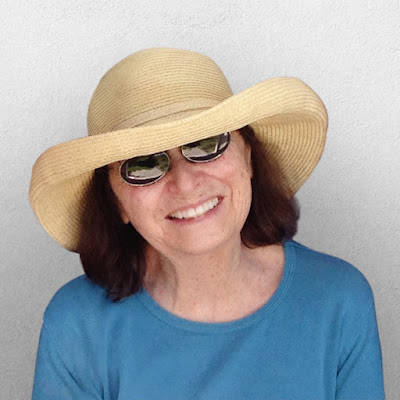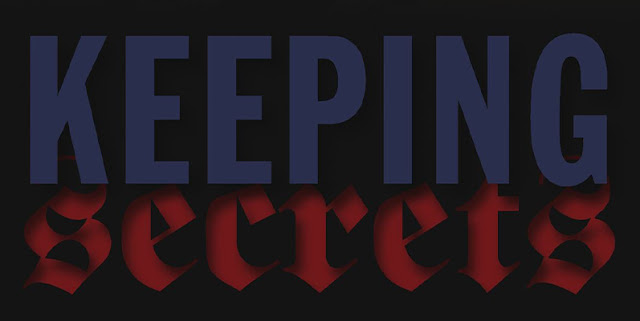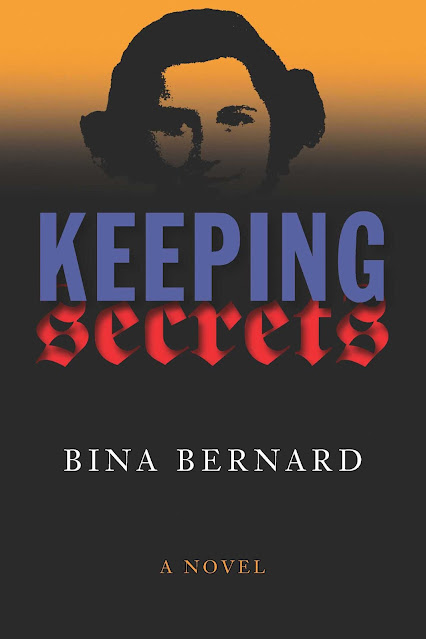Vol. 113
Bina Bernard
By THIRSTY
Bina Bernard was born in Poland and her immigrant experience is central to her view of the world. A founding Editor of People magazine, where she reported on politics and publishing, her debut novel, Keeping Secrets, was hailed by Lesley Stahl of 60 Minutes, as "suspenseful, a real grabber, and I promise you'll cry at the end."
Bernard lives in New York City and Bridgehampton with her husband, Walter Bernard, the noted graphic designer and art director, and Stay Thirsty Magazine caught up with her at her home in Bridgehampton for our One Hundred Words project where she responded in precisely one hundred words to each topic we drew from her novel.
STAY THIRSTY: Survival.
BINA BERNARD: In Keeping Secrets, Hannah’s childhood experience in Poland during WWII shaped her life. Separated from her parents and forced to masquerade as Zofia Novakoska in order to save her life, she knew that a mistake on her part, revealing her true identity could result in death. Fear of making a mistake continued to rule Hannah’s life long after the war was over and she and her parents left Poland. As a successful journalist in the US, even though intellectually she knew that nothing she did short of killing someone herself would cause her death, No Mistakes Allowed remained her mantra.
STAY THIRSTY: Poland.
BINA BERNARD: The Polish underground started the Warsaw Uprising to liberate Warsaw from Nazi occupation, on August 1, 1944. They fought for 63 days. Soviet soldiers stayed across the Vistula River but did not help. As a child, huddled in the basement, hearing wounded partisans moaning in pain, Hannah wondered who would save them. No one did. Their superior weapons enabled the Nazi war machine to turn Warsaw into ruble. While buildings burned on both sides of the street, the survivors were marched over decomposing bodies to the railroad station, and transported in sealed cattle cars to neighboring villages. WWII dragged on.
STAY THIRSTY: Orphanage.
BINA BERNARD: Being placed by her father in an orphanage run by nuns was a lifeline for four-year-old Lena during WWII. The price for harboring a Jew was death, still the Mother Superior took Lena in although suspecting she was Jewish. The Church protected many Jewish children like Lena. If the parents survived and were able to come to claim them, they were usually reunited with family after the war. Others were adopted and grew up to be good Catholics. As happened with Lena, some stepparents refused to give up the child. Some cases were resolved in the courts with mixed results.
STAY THIRSTY: Left behind.
BINA BERNARD: The train ride Lena and her father took to the orphanage was the only memory she had of her family. For years she clung to her father’s promise to come back for her. When he did not, a sadness underscored most of her life. Lena found both solace and shock in her stepfather’s deathbed confession that out of his love for her he kept her from her birth family, that they wanted her but gave her up to keep her safe because they were Jews. Her sadness was replaced with a determination to discover her past and find her family.
STAY THIRSTY: Escape.
BINA BERNARD: With most of their family killed, unable to locate Lena, and living as gentiles because post war Poland was not safe for returning Jews, Hershel decided they must leave Poland. His goal was to be reunited with his older brothers in America. Trying to leave Poland now under Communist control put the family back in war mode. The Communist government closed the borders, allowing only displaced persons to leave the country. With false papers documenting them as Hungarians, they crossed the border into Czechoslovakia. Hiding in safe houses along the way, they arrived in the American zone two weeks later.
 |
| Bina Bernard |
STAY THIRSTY: Immigrant.
BINA BERNARD: Immigrating to a new country is always difficult! It is much harder when it is out of desperation rather than by choice. Jews fleeing Europe as Hitler was advancing his final solution found borders closed. That changed once the horrors of the concentration camps were revealed. In 2022 with the massive destruction raining down on Ukraine by Russian armed forces streaming in real time the women and children seeking refuge have been welcomed in neighboring countries and supported by the world! But the up-rooting, even if temporary, will alter the lives of the refugees and those they left behind forever!
STAY THIRSTY: Loss.
BINA BERNARD: Hershel Stein’s plan to protect his family from the Nazis succeeded. He secured false identities papers for three-year-old Hannah, his wife and himself. He decided the safest place for his older daughter, Lena, was an orphanage run by nuns. Happily, he, his wife and Hannah reunited after the war, but not Lena. She was gone when Hershel went to collect her. He may have outwitted the Nazis, but his life was irrevocably changed. The pain of losing Lena and his guilt for finally leaving Poland without her, marred the rest of his life and almost destroyed his relationship with Hannah.
STAY THIRSTY: Forgiveness.
BINA BERNARD: Forgiveness is usually granted when the reason for the offense is understood. Lena had no problem forgiving Stefan Jankowski, her stepfather, for his deception. She absolved him of the pain he caused her birth family because Stefan was a devoted father who provided the love Lena needed to survive.
Hannah saw Stefan differently. To her he was a selfish villain who by refusing to return her sister to her family deprived Hannah of her father’s love. But she forgave her father’s coldness toward her once she understood that her presence was a painful reminder that Lena was not with them.
Link:


